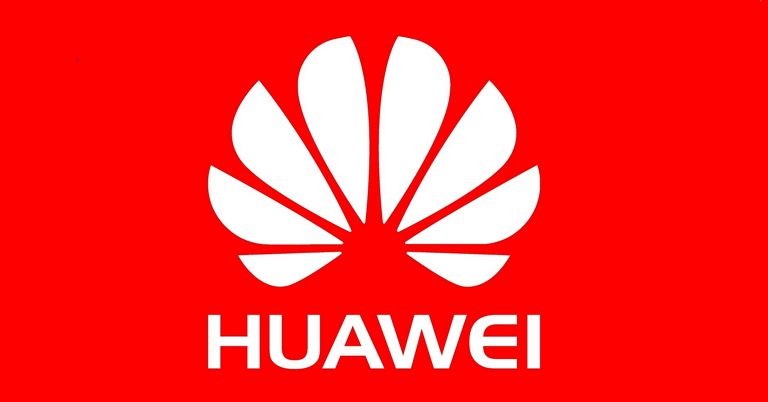
The recent decision to strengthen the Huawei ban by the US has impacted many of its business partners. The companies have now come forward asking permission to continue their ties with the Chinese company. While Intel has already been granted permission, companies like Sony and Samsung are still waiting for the official response. Learn more about the Huawei partners that are seeking permission to work with the Chinese tech giant.
Huawei’s Recent Worries
It has been a year since the US government listed Huawei in its Entity List. Initially, it restricted US-based companies to work with Huawei. The biggest concern for Huawei was the license of GMS, which was canceled because of the sanction. Even amidst the sanction, Huawei managed to record its biggest revenue to date. The company even surpassed Samsung in global shipments in the Q2 of 2020. However, Samsung is back on top with Huawei now in second place.
The US government made another announcement on September 15, 2020. It is now restricting the supply of components that uses US technology to Huawei. The future is looking dark for Huawei as its partners are cutting off the ties with the company because of the US restriction. But there seem to be other sides of the story too. While Huawei struggles to put new smartphones in the market, the company’s partners are losing a large chunk of its business because of the US ban. That is why a number of companies have filed for permission to carry out businesses with China.
Sony
The first company on the list is Sony, which is the world’s top supplier of the camera sensors for smartphones. According to Nikkei Asia, Huawei is Sony’s second-biggest client after Apple. The Chinese company is estimated to contribute to about 1/5th of Sony’s camera sensor business that is worth $9.5 billion.
Back in August, Sony forecasted its profit from the camera sensor business to fall by 45% for the year ending in March 2021; most of it because of the decline in market demand during the pandemic period. However, the actual figure can get even worse if it restricted from carrying out business with Huawei. Sony has already decided to cut its planned spending of three years because of the restriction on supplying components to Huawei.
Kioxia

The next company that is trying to gain permission from the US is the Kioxia. It is a company previously known as Toshiba Memory before its spin-off from Toshiba. The company still relies on its memory chip business for the major part of its profit and Huawei is one of its biggest clients. Kioxia has warned that if the restriction persists, it will result in an oversupply of the chips, thus lowering the market price.
Samsung, SK Hynix, and Others
Jeff Wang, chairman of Huawei Japan, says Huawei’s reliance on Japanese companies grew by almost 50% in 2019 and that the country is an important part of Huawei’s global supply chain. It’s not just Sony and Kioxia, companies based in South Korea have also applied for permission to work with Huawei. The list includes Huawei’s rival Samsung and SK Hynix. The latter is one of the world’s biggest supplier of DRAM chips. The Japanese and South Korean companies along with TSMC reportedly supply components worth 2.8 trillion yen to Huawei yearly.
TSMC is a Taiwanese company that Huawei outsources the production of its Kirin chipset. As of now, Huawei is restricted to work with TSMC and Samsung, which are the big players in the mobile silicon business. The only option for Huawei is to turn to China-based SMIC. However, the company is still stuck on the 14nm process, while both TSMC and Samsung are now moving to 5nm.
- Check out our review of the Nokia 5.3.







![Best Gaming Laptops in Nepal Under Rs. 250,000 (रु 2.5 Lakhs) [2025] Best Gaming Laptops Under 2.5 lakhs in Nepal [Feb 2025 Update]](https://cdn.gadgetbytenepal.com/wp-content/uploads/2025/02/Best-Gaming-Laptops-Under-2.5-lakhs-in-Nepal-Feb-2025-Update.jpg)
![Best Gaming Laptops in Nepal Under Rs. 120,000 (रु 1.2 Lakhs) [2025] Best Budget Gaming Laptops Under Rs 120000 in Nepal 2025 Update](https://cdn.gadgetbytenepal.com/wp-content/uploads/2025/05/Best-Budget-Gaming-Laptops-Under-Rs-120000-in-Nepal-2024-Update.jpg)
![Best Laptops Under Rs. 80,000 in Nepal [2025] Best Laptops Under 80,000 in Nepal March 2025 Update](https://cdn.gadgetbytenepal.com/wp-content/uploads/2025/03/Best-Laptops-Under-80000-in-Nepal-March-2025-Update.jpg)
![Best Laptops Under Rs. 70,000 in Nepal [2025] Best Laptops Under 70,000 in Nepal March 2025 Update](https://cdn.gadgetbytenepal.com/wp-content/uploads/2025/01/Best-Laptops-Under-70000-in-Nepal-March-2025-Update.jpg)
![Best Gaming Laptops in Nepal Under Rs. 200,000 (रु 2 Lakhs) [2025] Best gaming lapotp under 2 lakhs Nepal Feb 2025](https://cdn.gadgetbytenepal.com/wp-content/uploads/2025/01/Best-Gaming-Laptops-Under-2-Lakh-Nepal-Feb-2025-Update.jpg)
![Best Mobile Phones Under Rs. 15,000 in Nepal [Updated 2025] Best Phones Under 15000 in Nepal 2024 Budget Smartphones Cheap Affordable](https://cdn.gadgetbytenepal.com/wp-content/uploads/2024/03/Best-Phones-Under-15000-in-Nepal-2024.jpg)
![Best Mobile Phones Under Rs. 20,000 in Nepal [Updated] Best Mobile Phones Under NPR 20000 in Nepal 2023 Updated Samsung Xiaomi Redmi POCO Realme Narzo Benco](https://cdn.gadgetbytenepal.com/wp-content/uploads/2024/01/Best-Phones-Under-20000-in-Nepal-2024.jpg)
![Best Mobile Phones Under Rs. 30,000 in Nepal [Updated 2025] Best Phones Under 30000 in Nepal](https://cdn.gadgetbytenepal.com/wp-content/uploads/2025/01/Best-Phones-Under-30000-in-Nepal.jpg)
![Best Mobile Phones Under Rs. 40,000 in Nepal [Updated 2025] Best Phones Under 40000 in Nepal 2024 Smartphones Mobile Midrange](https://cdn.gadgetbytenepal.com/wp-content/uploads/2024/02/Best-Phones-Under-40000-in-Nepal-2024.jpg)
![Best Mobile Phones Under Rs. 50,000 in Nepal [Updated 2025] Best Phones Under 50000 in Nepal](https://cdn.gadgetbytenepal.com/wp-content/uploads/2025/01/Best-Phones-Under-50000-in-Nepal.jpg)
![Best Flagship Smartphones To Buy In Nepal [Updated] Best flagship phone 2025](https://cdn.gadgetbytenepal.com/wp-content/uploads/2024/07/Best-Flagship-Phones-who-is-it-ft-1.jpg)